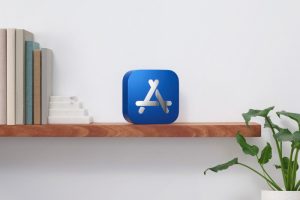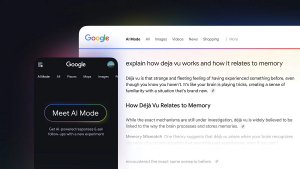3 Reasons Nokia Shouldn’t Drop Microsoft For Android
![]() There’s a lot of buzz going around over Nokia CEO Stephen Elop’s statement regarding the possible use of Google’s Android OS on their devices. The news came from Spanish news source El Pais. Elop’s answer to a question posed to him, “Do you discard launching an Android phone next year?” was loosely translated as:
There’s a lot of buzz going around over Nokia CEO Stephen Elop’s statement regarding the possible use of Google’s Android OS on their devices. The news came from Spanish news source El Pais. Elop’s answer to a question posed to him, “Do you discard launching an Android phone next year?” was loosely translated as:
“In the current ecosystem wars we are using Windows Phone as our weapon. But we are always thinking about what’s coming next, what will be the role of HTML 5, Android… HTML5 could make the platform itself—being Android, Windows Phone or any other—irrelevant in the future, but it’s still too soon [to tell]. Today we are committed and satisfied with Microsoft, but anything is possible.”
That statement got everyone talking about the possibility of Nokia turning its back on Microsoft and the Windos Phone OS, and teaming up with Google on an Android powered device. But these assumptions were put to rest when Nokia sent their own translation of Elop’s statement to various news sources:
“So, the way I think about it is, in the current war on ecosystems, we are fighting with Windows Phone. That’s what we’re doing. Now, what we’re always doing is asking, how does that evolve? What’s next? What role does HTML5 play? What role does Android or other things play in the future? We’re looking further into the future, but it terms of what we’re bringing to market, and what we’re immediately focused on, we’re focused on Windows Phone.”
Though Nokia was quick to snuff out the fire before it got out of hand, there’s still a possibility that we’ll see an Android-Nokia smartphone in the future. The question now is, should Nokia really consider Android as an option?
3 reasons why Nokia shouldn’t team up with Google
Do one thing and do it well
Though Microsoft is luring in other manufacturers to use Windows Phone OS for their devices, Nokia is still the primary partner dedicated to making smartphones that run Microsoft’s mobile OS. So instead of looking into the saturated Android market, they should use this exclusivity to their advantage and put rivals’ efforts to shame.
Right now, Nokia’s Lumia phones enjoy a market share of 74 percent while Samsung’s market share is at 2 percent, and HTC at 6 percent. With that said, it seems that when it comes to Windows Phone, consumers trust Nokia more than other brands. So if they jump ship, they could risk losing that edge.
Saturated Android ecosystem
As I’ve mentioned earlier, there are already a lot of Android devices available in the market. Samsung alone produces enough Android handsets that rivals are looking to other mobile OS’s for the sake of diversification. If Nokia uses Android on their devices, they’ll find themselves in an entirely different mobile battle, risking further departure from their initial goal of regaining the leading edge with mobile phone users.
Windows Phone 8
Windows Phone 8 just came out, which means there a huge opportunity to build around Microsoft’s newest mobile OS. That could be Nokia’s second chance to trump competitors by launching new products that utilize the new offerings of Windows Phone 8. It’s too early to tell if Windows Phone 8 is a flop, but Nokia should really give it time to shine before considering dropping Microsoft for Google all together.
A message from John Furrier, co-founder of SiliconANGLE:
Your vote of support is important to us and it helps us keep the content FREE.
One click below supports our mission to provide free, deep, and relevant content.
Join our community on YouTube
Join the community that includes more than 15,000 #CubeAlumni experts, including Amazon.com CEO Andy Jassy, Dell Technologies founder and CEO Michael Dell, Intel CEO Pat Gelsinger, and many more luminaries and experts.
THANK YOU















